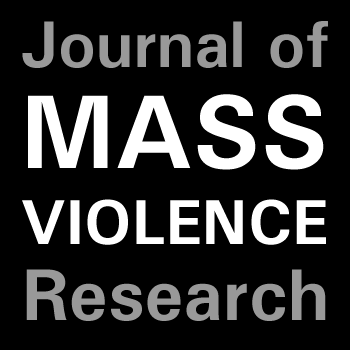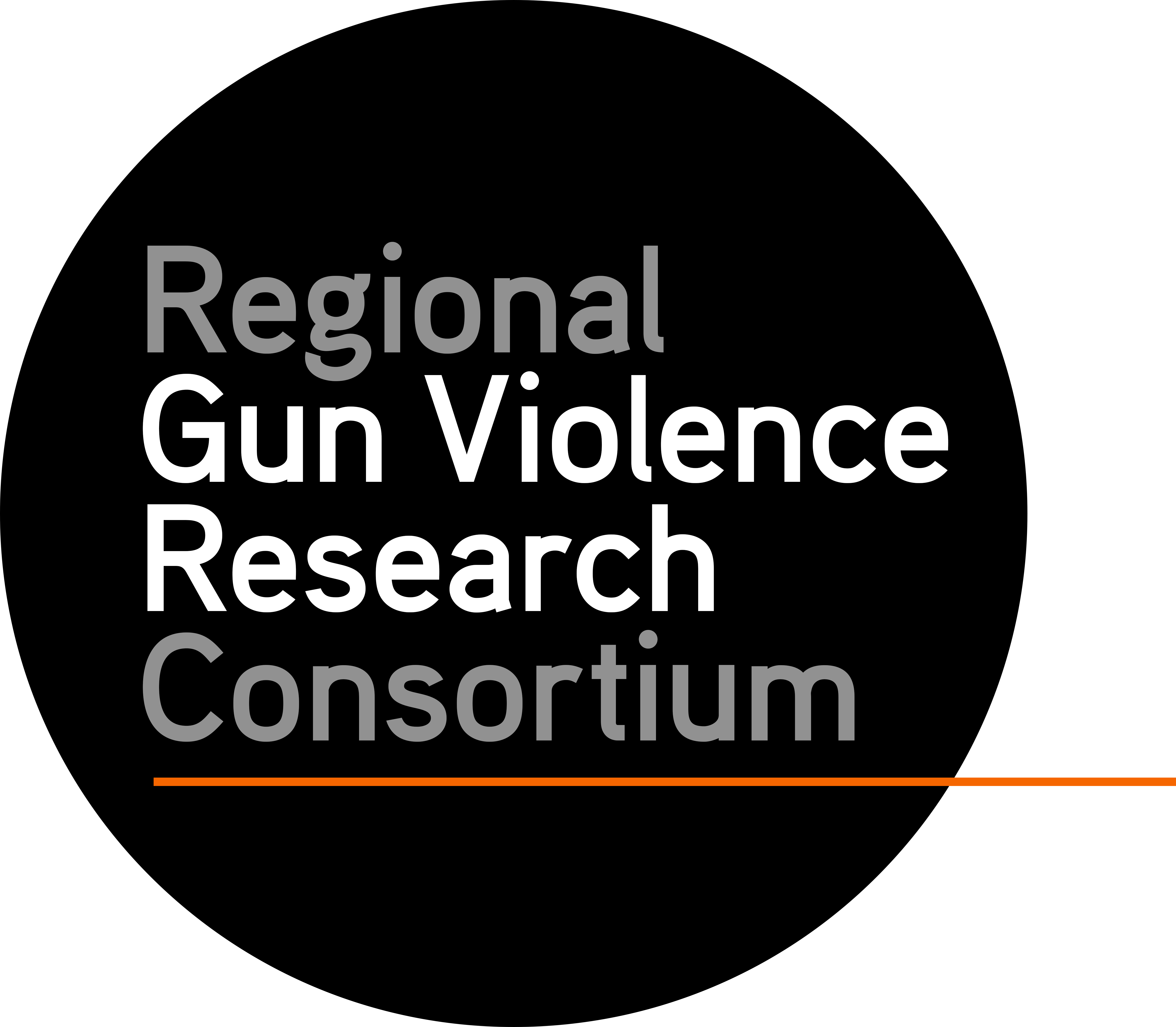About the Journal of Mass Violence Research
The Journal of Mass Violence Research (JMVR) was established with the goal of sharing rigorous, multidisciplinary, peer-reviewed studies on a variety of topics in relation to mass violence. With a focus on public scholarship and accessibility, JMVR aims to promote high-quality scholarship by authors. The journal also seeks to disseminate findings via articles while, at the same time, making research more accessible to the public through videos, audio recordings, and infographics. Together, this will help to generate both academic and public interest in this important research area.
JMVR seeks to meet these various aims all while elevating the voices, ideas, findings, and recommendations of both seasoned scholars and early career researchers from a number of different disciplines. These include (but are not limited to) criminology, criminal justice, sociology, psychology, public health, history, and the law.
Although there is a growing body of scholarship on issues related to mass violence (e.g., mass shootings, mass murder, terrorism, genocide) currently available, there has yet to be one outlet dedicated solely to the study of these complex phenomena. In response, JMVR was established as an opportunity to bridge together scholarship from various disciplines and subtopics related to mass violence all in one place. At the same time, much of the existing research exists behind paywalls, making important scholarship necessary to understanding mass violence inaccessible to the public and policymakers alike. JMVR seeks to overcome this challenge by providing an open-access platform. Through this type of outlet, all research is made available at no cost and with no barriers to vested stakeholders. By better understanding mass violence and its various subtypes from an evidence-based perspective, it can improve policies designed to prevent and respond to mass violence.
Guiding Principles
In an effort to address many of the shortcomings and stressors of publishing, the review process, and academia more broadly, JMVR aims to improve the state of the field by relying on our vision statement which, in turn, led to the creation of these guiding principles for editors, authors, and reviewers. We hope these will influence the interactions between authors and reviewers resulting in a positive experience and ultimately, high-quality, accessible research. The editors agree to abide by these principles, and we hope that all those involved with JMVR will do the same. Click any principle to expand and read more.
For the Journal
Rationale: The journal’s vision statement highlights the purpose of the journal, explaining the desire to publish rigorous research in the field of mass violence. This research should provide readers, policymakers, and the public with information that is non-partisan, yet valuable in creating evidence-based prevention and response strategies. It is not the intention of the journal to weigh in on national debates about controversial issues, but rather to provide readers with knowledge and research to form their own opinions, approaches, and stances.
For Editors and the Editorial Board
Rationale: Many scholars and authors have horror stories about the submission processes and the length of time that it has taken to publish their articles. At JMVR, we respect authors’ time and their passion for their work. As such, we hope to expedite processes and reduce the time from submission to decision. Generally speaking, we plan to return reviewers’ comments and initial decisions within 45 days from submission and allow the authors to resubmit, beginning the process again.
Rationale: Although the co-founders / editors are criminologists, we recognize that mass violence research is a multidisciplinary field. No single discipline has a claim to these issues, and we value the perspectives from a number of different fields including (but certainly not limited to) psychology, law and public policy, sociology, public health, and more, provided that the submission meets journal criteria, respects these guiding principles, and utilizes rigorous and sound research methodology.
Rationale: JMVR recognizes that the sub-field of mass violence research, like many academic disciplines, is largely homogenous in terms of authors’ race, gender, age, and other factors. The editors and the editorial board hope to encourage submissions from early career researchers and scholars from historically marginalized groups. It is our desire to support them in their academic endeavors while also embracing and acting on principles of inclusivity, diversity, and equity.
For Authors
Rationale: Prior research has shown that many mass shooters and other perpetrators of mass violence sought fame and notoriety (Lankford, 2016; Lankford & Madfis, 2018; Schildkraut, 2019). In addition to rewarding killers for their actions, media attention and naming shooters serve to incentivize other fame-seeking perpetrators, leading to increased threats and possible similar events in the two weeks immediately following a high-profile attack (Klinger & Klinger, 2018; Towers et al., 2015). Based on this research and recommendations from organizations including No Notoriety, the Advanced Law Enforcement Rapid Response Training (ALERRT) Center, and the FBI, we request that authors refrain from identifying perpetrators by name or limit the use of their name to once per article. Instead, we recommend that they are referred to as “the perpetrator” and/or simply described using their age, city, or place of attack.
Rationale: While researchers aim to reduce or eliminate bias and study social problems objectively, we must recognize that the victims of mass violence may be affected by research findings. As such, we expect that the research process, as well as any subsequent publications, are delicate in their treatment of victims, including individuals and communities.
Rationale: One of the primary aims of JMVR was to address many of the current problems with the publication process. One such issue is that of accessibility. This journal provides free publication for authors and full open access to increase opportunities for public consumption. We hope that authors will remember this, particularly in writing about complex methodological approaches, as we want the findings to have meaningful impacts on the dissemination of knowledge and clear implications for public policy and responses. Be sure that, at the very least, the discussion and conclusions provide simple, clear explanations. Additionally, whenever possible, avoid jargon and obfuscating, or overly academic, language.
Rationale: Since we believe that, above all, research should guide policy, this journal maintains a non-partisan approach and avoids political alignment. There are opportunities, however, to provide politicians, legislators, and policymakers with clear recommendations for evidence-based policies. This journal also hopes to provide opportunities and ideas for future research. As such, each article for submission should have a clearly delineated section with recommendations and implications for future research and policy as outlined by the research findings.
Rationale: Again, in the spirit of public research and accessibility, once authors receive notice about acceptance, they are asked to produce a resource that is a clear, easy-to-understand summary of their study’s findings and policy implications. Authors will have the option to create an infographic or short video or audio recording for distribution and promotion on the website and social media. We hope that this will allow for broader accessibility and increased interest in mass violence research, individual authors, and the journal.
For Reviewers
Rationale: We created this journal in the hope that this review process will be more appealing to researchers. Our goal is to not only to enhance professionalism and support, but also to address and correct existing concerns about publication, including disrespect and discouragement. By requiring productive feedback that offers meaningful, detailed ways to improve the submitted article, we hope that this process and expectation will encourage authors to submit and assuage fears about imposter syndrome and unnecessarily harsh reviews. We also believe that this may have a positive ripple effect in the community and motivate academics to embrace a culture of kindness.
Rationale: JMVR aims to respect all authors’ time and efforts by strictly adhering to the 45-day submission to initial decision expectation. We do not believe that decisions, review processes, and publications should take years. Instead, we hope to publish articles online upon acceptance (along with the summary infographic or video), and we believe this expedited process will create a respectful culture of communication between authors and editors while also producing research that reflects the urgency of the issues at hand and the authors’ dedication.
Interested in sponsoring JMVR? Please feel free to contact us!


